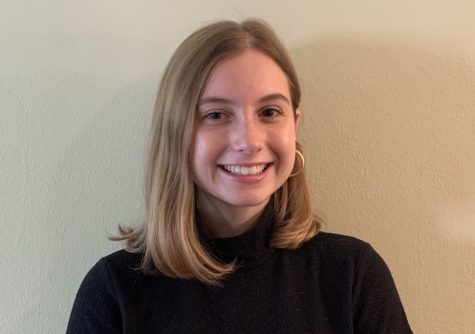At the April 8 faculty meeting, the administration presented their response to the four anti-racism resolutions that were introduced by Wake Forward, a group of self-described progressive faculty. They were initially passed at the March 18 meeting.
President Nathan Hatch, Dean Michelle Gillespie and Vice President of Diversity and Inclusion Jose Villalba informed the faculty of four initiatives, including a “community conversation” with students, Dean of Admissions Martha Allman and Associate Dean of Admissions Kevin Pittard that will be held on April 17 at 5:30 p.m. in the ZSR Auditorium.
In an email to the Old Gold & Black, Villalba explained that the forum is still being planned.
“This community conversation is salient for a few reasons. First, it will serve as a chance to reflect on a semester that has been challenging on many fronts to various members of our community,” Villalba said. “Second, it is intended to center the concerns and requests of those students most impacted by racial, cultural and socioeconomic disparities on our campus. And, third, it will provide students and administrators a space for shared dialogue around the plans for next year … to address our challenges in fostering a more inclusive campus community and experience.”
According to an email sent to Wake Forward members, Hatch and Villalba also introduced three long-term plans for addressing the requests included in the resolutions.
While outlining their support for the Anti-Racism Coalition’s demands, the second resolution called attention to the bias-reporting system’s lack of transparency. In response, one of the initiatives Hatch introduced is a committee that will review the bias report system and investigate the ability for a “zero-tolerance for white supremacy” policy to be adopted. Headed by Matthew Clifford, interim dean of Residence Life and Housing, and Tanya Jachimiak, Title IX coordinator, the committee is still developing in terms of “scope and goals,” according to Clifford.
“While we have not finalized the composition of the committee, it is critically important that students and faculty are well-represented on the group,” Clifford said.
Another goal set by Hatch during the meeting is the delegation of more resources to the Provost Office’s Histories of Wake Forest initiative, which aims to address and investigate enslaved labor connected to the university. Hatch also mentioned that the initiative will consider the renaming of campus buildings, as first requested by the Anti-Racism Coalition.
The final plan introduced was the establishment of a President’s Commission on Inclusion. The group will begin meeting next year and discuss “the issue of diversity action plans,” according to the Wake Forward email. Villalba explained that the body will be based off of the other two President’s Commissions, the LGBTQ Affairs Commission from 2013 and the First Year Experience Commission from 2018.
“Logistics around the charge, membership, and aim of the Commission are currently underway,” Villalba said. “Right now it is difficult to say what it will look like; however, students, faculty, staff and members of our internal and external community will have an opportunity to participate.”
In emails to the Old Gold & Black, multiple faculty members who worked to craft the four resolutions shared their responses to the initiatives proposed by the administration.
“Monday’s meeting shows that student and faculty anti-racism efforts have grabbed the attention of the university’s leaders, and there may be some initial signs of movement on what we have been calling for,” said T.H.M Gellar-Goad, a member of Wake Forward and an assistant professor in the department of classics. “Anti-racist faculty members of Wake Forward have contacted university leaders to request that we be part of the various commissions and task forces and committees charged with addressing different components of the situation, and we will continue our advocacy and our organizing efforts through the spring and into the summer and fall.”
Gellar-Goad also emphasized his desire for the university to provide more details and specific information regarding their plans, and the need for the university to centralize the “perspectives … of student and faculty anti-racists.”
Michaelle Browers, a member of Wake Forward and professor in the department of politics and international affairs, also called on the university to clarify the role of these initiatives.
“Two things I hope the administrators at the faculty meeting heard are: first, the need to make the administration’s work more transparent and better publicized and, second, the desire of so many faculty to play a more substantive role in the work yet to be done,” Browers said.
Kristina Gupta, a member of Wake Forward and assistant professor in the department of women’s, gender, and sexuality studies, highlighted the incongruities between the resolution’s requests and the administration’s response.
“I was disappointed by the administration’s decision to use the language of ‘inclusion’ as opposed to ‘truth and reconciliation’,” Gupta said. “The language of ‘inclusion,’ as well as the language of ‘diversity,’ suggests that we simply need to accommodate individual and group ‘differences,’ when in fact what we need to do is address historical and present configurations of systemic injustice, including white supremacy.”

















